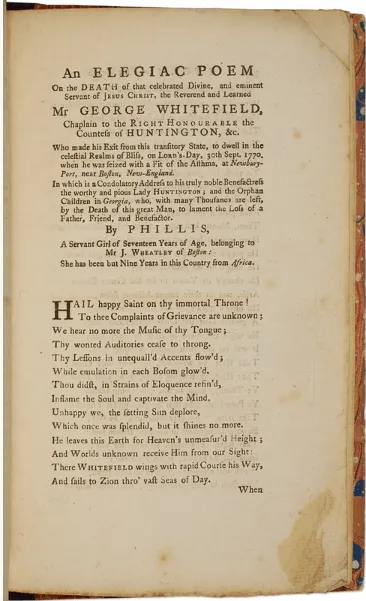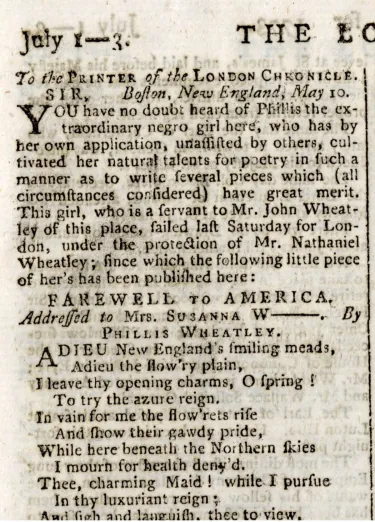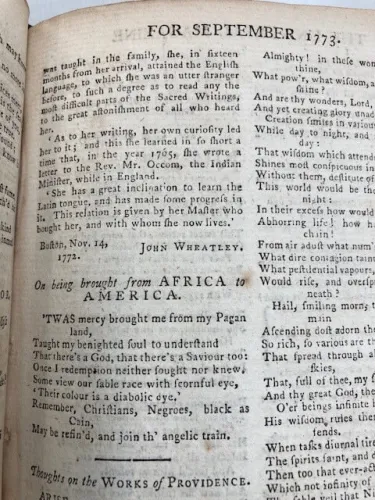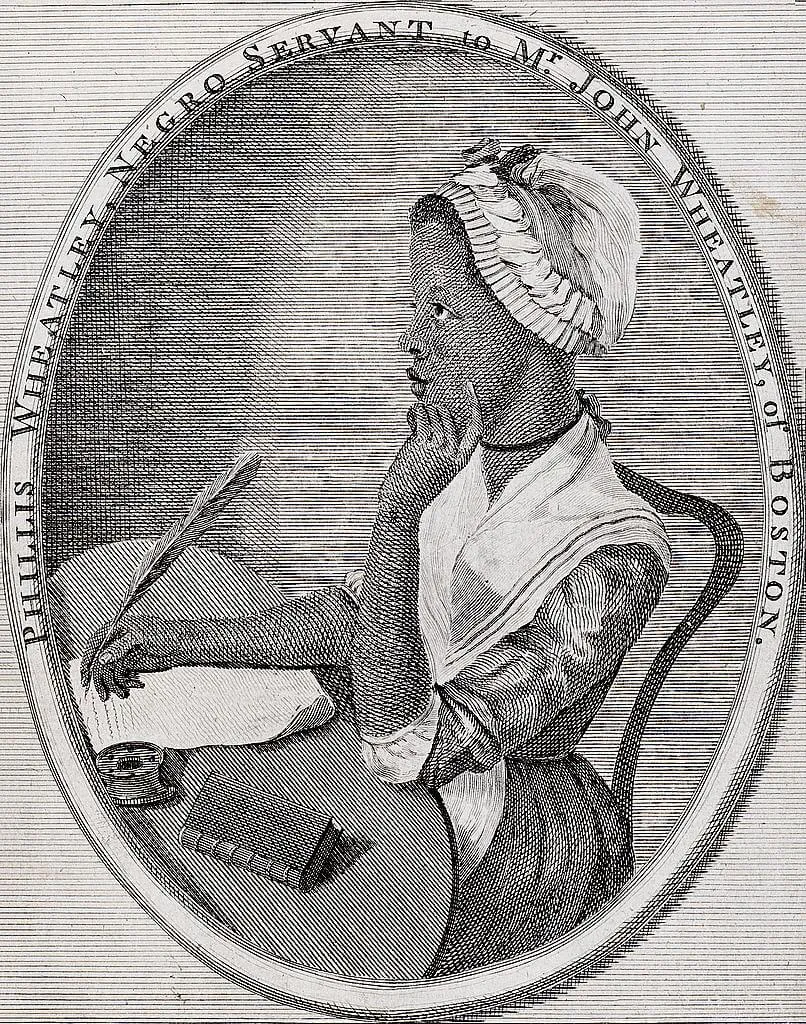In 2023, Silver Special Collections librarians Chris Burns and Prudence Doherty, English professors Elizabeth Fenton and Mary Lou Kete, and UVM alumnus and book collector Bruce Lisman ('69) initiated an Early American Literature project at UVM. The project involves significantly expanding the Silver Special Collections Library’s holdings of late 18th and early 19th century American literature to support UVM classes, research projects and events. Bruce Lisman generously started the project with a donation of books from his collection as well as funds for additional purchases and a lecture series, the Lisman Lectures in Early American Book Culture.
This spring, the Early American Literature team is highlighting the poems of African American poet Phillis Wheatley that have been added to the Rare Book collection. On April 17, Dr. Tara Bynum will present the second Lisman Lecture in Early American Book Culture, “How to Remember Phillis Wheatley; Or, Obour Tanner’s Grief.” Dr. Bynum, an Associate Professor of English and American Studies at the University of Iowa, will draw on correspondence between Obour Tanner and her friend Phillis Wheatley to consider what it means to remember a friend while enslaved in the eighteenth century. The presentation begins at 4:30 in the Marsh Room in Billings Library at 48 University Place and all are welcome.
To prepare for Dr. Bynum’s presentation, Professor Elizabeth Fenton and her students in “Early American Print Cultures” examined UVM Libraries Wheatley titles. “Working with materials in Special Collections gives students a new perspective on the texts we are reading for class. It's one thing to read a Phillis Wheatley poem in an anthology; it's another to turn the pages of a 254-year-old London newspaper containing one of her earliest published works,” says Fenton. “My students marveled at the quality of the paper, the size of the type, and the precision of the newspaper's layout in the press. They considered the historical forces that would preserve such a paper and eventually bring it to the University of Vermont. Seeing texts in their earliest printed forms allows students to reflect on the labor that went into their production and to consider the conditions under which that labor was performed.”
Attendees can look forward to viewing the following Wheatley poems at Dr. Bynum's presentation which aptly falls during National Poetry Month:



